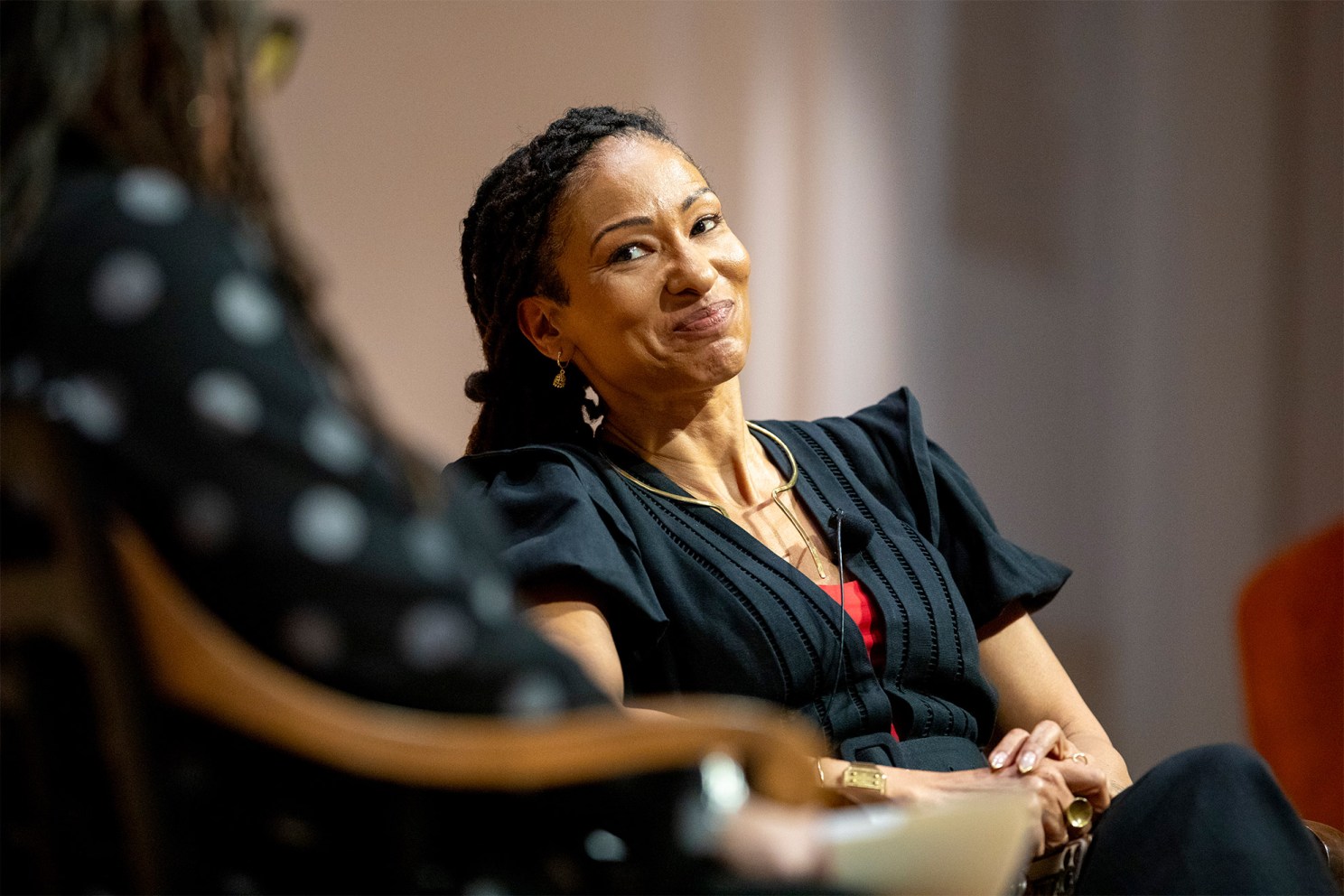Future doesn’t have to be dystopian, says Ruha Benjamin

Veasey Conway/Harvard Staff Photographer
In Tanner Lectures, Princeton sociologist talks AI, social justice
The average citizen shouldn’t be afraid to imagine a radically different future for humanity, Ruha Benjamin argues. After all, the billionaire CEOs of tech companies are doing it.
The professor of African American Studies at Princeton University, who delivered the Tanner Lectures on Human Values hosted by the Mahindra Humanities Center last week, argued that proponents of AI-powered futures often frame their visions as altruistic despite actually being driven by self-interest.
“There’s absolutely no reason to trust that tech elites have any wisdom to offer when it comes to alleviating human suffering,” Benjamin told the audience who packed Paine Hall. “Billionaires building bunkers to survive AI apocalypse, attempting to disrupt death through cryopreservation, scouting the planet for pop-up cities and network states, are not reliable stewards of the collective good.”
Too often AI technologies marketed as “efficient” and “progressive” only create more oppression, Benjamin said, citing examples such as facial recognition software leading to false arrests and automated triage systems deciding who receives healthcare.
Benjamin said AI is often touted as a moral (or, at least, morally neutral) decision-making technology because it operates on math rather than emotion. But making decisions for society based on math and algorithms hurts the same marginalized groups harmed by the 20th-century eugenics movement, she said.
“One of the buzzwords that goes around is that these systems are so special because they’re engaged in ‘deep learning,’ by which people mean computational depth,” Benjamin said. “But what I suggest is that computational depth without social and historical depth ain’t that deep.”
Benjamin said it’s hypocritical to see superintelligence, Mars colonies, and underground apocalypse bunkers as bold innovations while viewing public goods such as free public transportation and affordable housing as impractical.
“This is an invitation to think about the different types of knowledges that we need around the table,” Benjamin said. “We can’t leave it simply to those who have technical know-how. Many of the problems we’re enduring right now are because those people who are creating tech solutions for society don’t know anything about society.”
Benjamin called for a renewed focus on creativity and imagination, urging universities to prioritize inquiry through arts and humanities.
“This is an invitation not only to be critical, but to be creative. To ask ourselves, ‘Now what?’” she said. “Instead of trying to make the world a little less harmful and make these systems a little less harmful, what if we were to completely reimagine them, envisioning a world beyond borders, beyond policing, beyond surveillance and supremacy? In the process, I think we’ll have to work on dismantling the walls in our own minds, those mental barriers that tell us to ‘get real’ when we attempt to imagine otherwise.”




